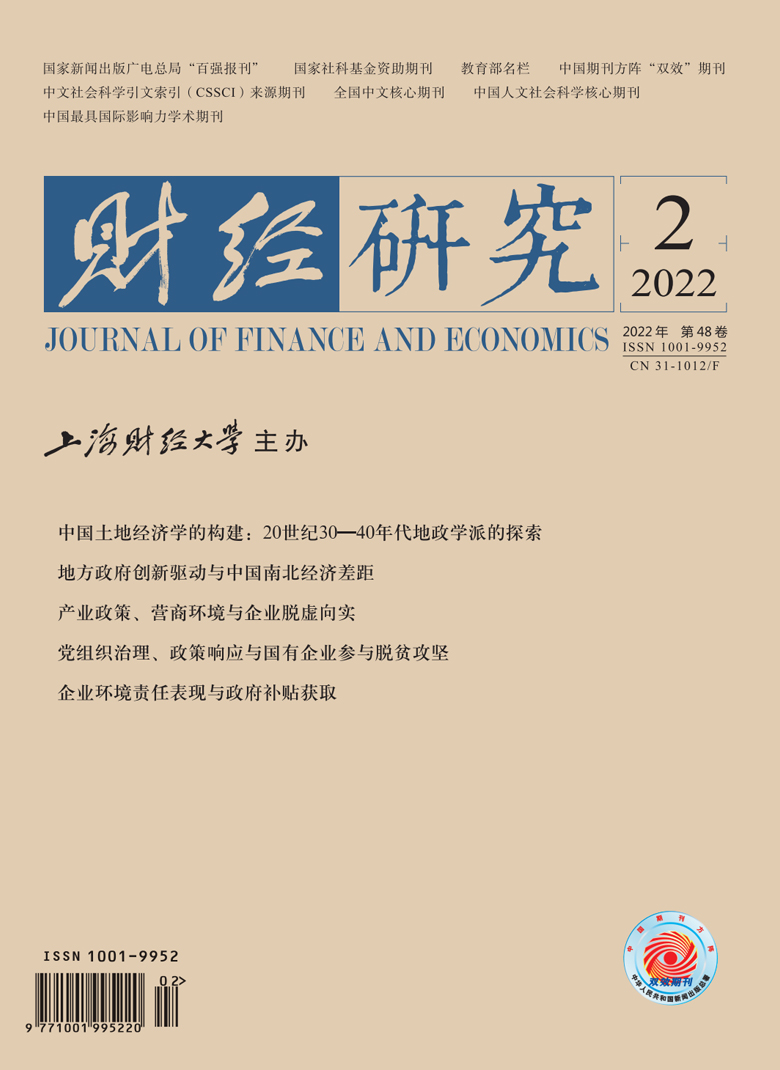In 2020, the Chinese government solemnly promised to the world to achieve the carbon peak by 2030 and the carbon neutrality by 2060. As the core of the modern economy, enterprises play an essential role in promoting the realization of “carbon peak, carbon neutrality” and the construction of ecological civilization. However, some enterprises have a false environmental protection phenomenon of “more words than deeds” in environmental protection practice. This phenomenon constitutes an obstacle to China’s sustainable development strategy. Therefore, it is important to find the internal behavior decision-making and effective governance strategy of corporate environmental responsibility.
In China, on the one hand, local governments have discretion in the allocation decision of subsidy resources. On the other hand, local governments are mainly responsible for local ecological and environmental problems. Under the background of strengthening the environmental protection performance appraisal of officials, enterprises are likely to use the environmental responsibility performance of “more words than deeds” for impression management, improving the evaluation of local governments and obtaining more resources. Therefore, this paper focuses on the impact of enterprises’ environmental responsibility performance of “more words than deeds” on government subsidies. It provides a new interpretation of the behavior, decision-making and practical performance of Chinese enterprises in the process of fulfilling environmental responsibility, and provides a new reference for the formulation of environmental policies in China.
This paper uses the text analysis method to collect data from the relevant reports of listed enterprises and identify the characteristics of “more words than deeds”. It empirically tests the impact of enterprises’ environmental responsibility performance of “more words than deeds” on government subsidies. The study finds that: (1) Enterprises with “more words than deeds” in environmental responsibility receive more government subsidies. (2) The environmental responsibility performance of “more words than deeds” helps enterprises obtain government subsidies, which only exists in the short term. (3) The central environmental protection inspector has restrained the positive relationship between “more words and less deeds” and government subsidies. (4) The positive correlation between “more words and less deeds” and government subsidies is more significant in enterprises with more serious pollution and no political connection. And compared with environmental subsidies, “more words than deeds” has a more obvious positive impact on non-environmental subsidies.
This paper enriches the existing literature from the following aspects: (1) The existing research has not paid attention to the inconsistency between words and deeds in reality from the disclosure structure of environmental information disclosers. Based on the two dimensions of words and deeds, this paper focuses on the phenomenon of “more words than deeds” in the performance of corporate environmental responsibility, which is a further deepening of the research on corporate microenvironmental behavior. (2) In the background of paying attention to environmental protection in China, enterprises are motivated to adopt the environmental responsibility performance of “more words than deeds”, that is, adopt low-cost self-packaging to meet the local environmental protection requirements. In this regard, while supporting enterprises to actively disclose environmental information, the government should pay more attention to the assessment and supervision of enterprise environmental governance investment. (3) As a major system innovation, the central environmental protection inspector has achieved positive results in practice. The results of this paper show that the central environmental protection inspector inhibits the resource acquisition effect of “more words than deeds”, which provides a new perspective and empirical support for a comprehensive understanding of the significance and impact of the central environmental protection inspector system.
The policy recommendations of this paper are as follows: (1) The environmental responsibility performance of “more words than deeds” belongs to hidden impression management behavior. The government should strengthen the assessment and supervision of enterprise environmental governance investment. (2) Government subsidies can improve the environmental protection enthusiasm of enterprises through resource support. However, from the perspective of sustainability, it is still necessary to guide enterprises to improve their environmental protection awareness, so as to reduce environmental pollution at the root. (3) The central environmental protection inspector has restrained the resource acquisition effect of “more words than deeds” enterprises and played a positive policy effect. In this regard, we should continue to further promote the central environmental protection supervision system and improve the construction of ecological environment governance mechanism. (4) Regulators need to further improve environmental information disclosure rules, focus on the supervision of enterprises with inconsistent words and deeds in the environmental report, and impose corresponding punishment measures according to the situation.






 8214
8214  10314
10314

